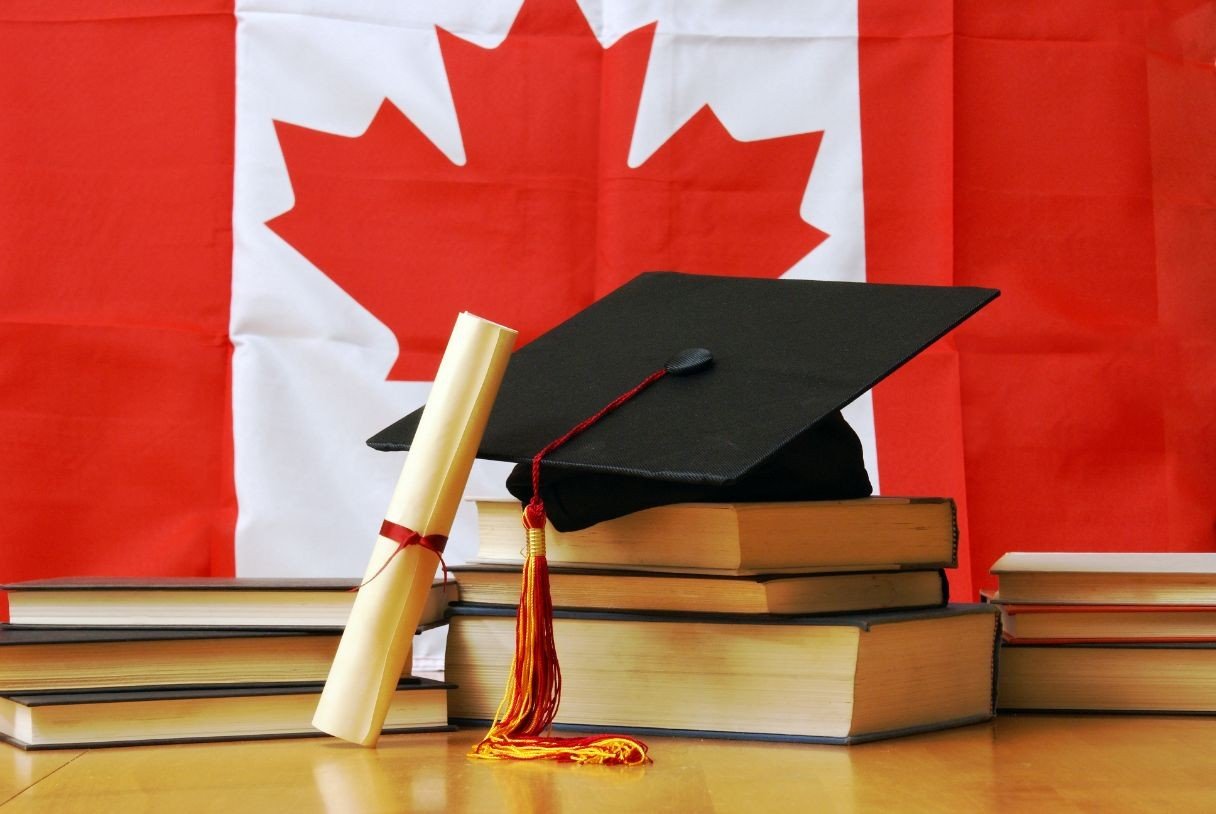This article features Canada Student Visa Guide for international students, including the requirements and application fees. Keep reading!
Canada attracts a steady influx of Indian students. Admissions to prestigious Canadian universities require exceptional academic achievements and a Study Permit. If one desires to partake in academic, professional, or vocational training at any educational institution in Canada, obtaining a study permit before entering the country becomes imperative. After arriving in Canada, students receive a study permit. However, students must first apply for a Temporary Resident Visa through the Canadian High Commission or Visa Application Centers. VFS Global Services serve as the designated VACs for Canadian visas.
Additionally, candidates should familiarize themselves with the reasons behind potential rejections of their Canadian visa applications. In this article, we will enlighten you on everything from the requirements for a Canada student visa to the documents necessary for obtaining a Study Permit.
Read also: Top 10 International Scholarships in London (Fully Funded).
Why Choose Canada for Study?
Exceptional Education: Canada boasts outstanding educational institutions that rank among the world’s finest. The top 200 academic institutions feature about eight Canadian universities worldwide, per the QS World University Rankings for 2023. According to the Times World University Rankings 2023, seven Canadian universities also secure positions among the top 200 universities globally. Canadian institutions provide outstanding research facilities, sports and recreational amenities, accommodations, and other conveniences, fostering both academic success and personal growth among students.
Affordable Education: Studying in Canada is more cost-effective than in the United States or the United Kingdom.
Multicultural Environment: Canada’s pleasant demeanour and multicultural atmosphere allow students to embrace diverse cultures and experiences.
Work Opportunities for International Students: International students can apply for a work permit and work in Canada for up to three years. They are also permitted to work part-time while enrolled in their studies.
Top Programs in Canada
Considering career prospects, industry demand, and work permit opportunities, Canada offers numerous excellent programs for international students to enrol in. Some notable examples include:
- Bachelor of Business Administration (BBA) in Canada
- Master of Business Administration (MBA) in Canada
- Technology Programs in Canada
- Master of Science (MS) in Canada
- Bachelor of Computer Applications (BCA) in Canada
- Master of Computer Applications (MCA) in Canada
- Hotel Management Programs in Canada
What is a Canada Study Permit?
A Canadian Study Permit is a valid document issued by Canadian immigration authorities that grants permission to international students to pursue studies in Canada. International students can only study in Canada if they obtain a valid permit. Moreover, students with a study permit can only enrol in Designated Learning Institutions (DLIs). A Designated Learning Institution is an educational establishment authorized by a provincial or territorial government to receive international students.
Obtaining the Canada Study Visa
To obtain a student visa in Canada, you must carry the Letter of Introduction and all the required documents when travelling to Canada. At the airport, meet an immigration officer, then hand over your passport and Letter of Introduction to the border officer. They will validate the documents and issue a Study Permit if approved.
Related: 30 Abroad Study Scholarships for Indian Students.
Eligibility Criteria for Canada Student Visa
The following points outline the requirements for a Canada Student Visa:
- Vaccination: You must qualify as a fully vaccinated traveller. Accepted vaccines include AstraZeneca/COVISHIELD and Bharat Biotech Covaxin.
- Approval by a Designated Learning Institution: You must provide proof of permission from a designated learning institute (DLI).
- Sufficient Funds: You must demonstrate that you possess adequate funds to cover your tuition fees, living expenses for yourself and any accompanying family members, and return transportation.
- Clean Background: It is necessary to provide a police verification certificate to confirm your clean background and lack of criminal records.
- Health Checkup: A medical certificate affirming your good health is required.
- Convincing the Visa Officer: During the visa interview, you must convince the visa officer that you intend to leave Canada upon completing your studies.
Canada Study Visa Document Requirements.
You should commence the student visa application process after receiving the acceptance letter from your chosen college. If you plan to begin your studies in September, initiating the visa process around June is advisable. The following documents are necessary for applying for a Canada Student Visa:
- Valid Passport: A valid international passport is required to apply for a Study Permit. The passport’s validity should cover the intended duration of your stay in Canada.
- Proof of Approval by a Designated Learning Institution: You must provide the acceptance letter from the university or institute you plan to attend.
- Proof of Funds: You must demonstrate sufficient funds to pay for tuition fees, living expenses, and return travel. The Canadian immigration authorities estimate that a student would require at least CAD 10,000 for each year of their stay. Various forms of proof can be used, including bank statements, guaranteed investment certificates, student loans, and more.
Please note that the minimum bank balance required for a Canada student visa depends on whether you will be staying in Quebec or outside Quebec. It also varies based on the number of accompanying individuals during your stay in Canada.
Minimum bank balance requirements for a Canada Student Visa:
Outside Quebec:
- Primary applicant: CAD 10,000 annually (excluding tuition fees)
- First family member: CAD 4,000 annually (excluding tuition fees)
- Every additional member: CAD 3,000 annually (excluding tuition fees)
In Quebec:
- One person (under 18 years): CAD 6,569 annually (excluding tuition fees)
- One person (18 years or above): CAD 13,134 annually (excluding tuition fees)
- Two persons (18 years or above): CAD 19,264 annually (excluding tuition fees)
- Two persons (18 years or above) + 1 person (under 18 years): CAD 21,579 annually (excluding tuition fees)
- Two persons (18 years or above) + 2 persons (under 18 years): CAD 23,290 annually (excluding tuition fees)
4. Passport Size Photographs: If you have chosen to submit an offline application, you will need two recommended passport-sized photographs that adhere to the specified standards. You must obtain a digital copy of the picture for online applications, ensuring it does not exceed 4MB. The image should feature a standard neutral facial expression, and a plain background, with no headgear unless required for religious purposes. Please note the following:
- The image should have a minimum size of 35 mm x 45 mm.
- The photograph should be recent, taken at most six months prior.
- Write your name and date of birth on the back of each picture.
5. Immigration Medical Examination: Canadian immigration requires international students to undergo a mandatory Immigration Medical Examination by authorized panel physicians. You must book an appointment with a designated doctor listed by the immigration authorities for the medical examination. It is advisable to schedule the appointment approximately one week before beginning your visa application. Please ensure the doctor has enough time to confirm and upload the required documents. Scheduling an appointment in advance with the nearest empanelled doctor or facility as listed is recommended.
The panel physician will carry out a comprehensive medical examination, which may include chest X-rays and laboratory tests. The physician will send the inspection results to Canadian immigration authorities.
6. English Language Proficiency Exam Score: While not mandatory at the time of application, it is strongly recommended that you have already taken an English Language Proficiency Exam and obtained your score before initiating the Visa Application Process. Typically, you would have already submitted your English language proficiency score as part of your admission requirements for the Canadian university. Accepted exams include TOEFL, IELTS, and others.
7. Statement of Purpose: Also known as a Letter of Explanation, when applying for a Canadian Study Permit, you must present an essay stating clearly the purpose of your trip to Canada and demonstrating your understanding of your responsibilities as a student. While this document may be optional according to the checklist, including it in your application is highly recommended.
5. Credit Card: The application fee for a Canada student visa is CAD 150.
In addition to the above, you will need access to a digital scanner if you apply online. However, if you use offline, you should have valid copies of all the documents mentioned above. It is important to note that when applying online, you must download specific documents, fill the required fields out, print them, sign them, and then upload them.
During the personal interview, the interviewer may request additional documents to provide evidence of your academic or financial status. These documents may include:
- Transcripts, diplomas, degrees, or certificates from your previous educational institutions
- TOEFL, SAT, GRE, or GMAT
- Proof of your intention to depart from Canada upon completion of your studies
- Documentation demonstrating how you will cover all educational, living, and travel expenses.
Read also: Top 10 American Scholarships for International Students.
Step-by-step Procedure on How to Apply for Canada Study Visa.
Follow the steps below to apply for a Canadian student visa:
- Check the processing times: The processing time for a Canada visa is typically six weeks (excluding biometrics). It is advisable to go to the official website of the Canadian consulate to obtain precise information about the processing time and to track your application.
- Determine how to apply:
(a) Applying online: Get a scanner to create the required sizes of electronic copies of these documents for uploading and a valid credit card for online payment. You must also provide fingerprints at the regional Visa Application Centre (VAC). Note that even for online applications, you will visit the VFS offices near you to submit your passports and provide confirmation of form submission and fee payment. The steps may vary slightly regarding the documents you must carry to the VAC.
(b) Apply on paper: Download the application kit and read the instruction guide carefully. The guide features essential information about study permits and instructions to help you complete your application. Use the document checklist provided. Applying on paper is only allowed under two conditions: if you have a disability preventing you from applying online or holding an identity or travel document for non-national residents, refugees, or stateless persons.
(c) Apply at a port of entry: The following individuals can also apply at a port of entry:
– Ukrainian nationals (or their family members)
– US citizens – US permanent residents (or lawful permanent residents of the US)
– Greenland residents
– Saint-Pierre and Miquelon residents - Please complete the VFS Consent Form and attach it to your application form. You will need this form to avail the assistance of VFS services for your visa application process.
- Pay the processing fee: Visa fees must be paid alongside VFS Global service charges when applying in person or by mail. The processing fee is non-refundable. Suppose your spouse, common-law partner, and children are coming along with you, and you are applying for any of these kinds of visas; temporary resident visas, work permits, or study permits. In that case, you must pay the appropriate processing fees for their applications.
- Submit your application and supporting documents: Visit the nearest VFS office, pay the service charges, and submit your complete application to obtain a payment receipt. The payment receipt will contain a unique tracking number that you can use to track the progress of your application online. You can submit your ticket and the passport request letter in person or through VFS. You will then receive a Temporary Resident Visa and a Letter of Introduction.
Canada Student Visa Fees
The fee for a Canada student visa is CAD 150.
Canadian visa applications can be submitted online or offline. The student visa processing fees can be paid online (via credit card), offline (via demand draft if you intend to pay at the High Commission of Canada), or in cash at the Visa Application Centre (VAC). Ensure you pay the application fee when submitting your application or provide a receipt for online payment.
Please note that the visa fee mentioned does not include VAC service charges. Additional service charges specific to your region will apply with a receipt.
After submitting your visa application, you must submit a biometric fee of CAD 85. This fee is in addition to the regular visa fee. You will be required to provide your biometrics at a Visa Application Centre.
Processing Time for Canada Student Visa
The processing time refers to the duration it takes for the Canadian immigration authorities to process a visa application. It begins when the application is filed and continues until the final decision. Generally, the processing time for a Canada student visa is around six weeks. Applicants, both online and paper-based, can track the progress of their applications through their MyCIC accounts. If applying through the Student Direct Stream (SDS) route, the processing time after biometrics is 20 calendar days.
Study Permit Renewal
If your Canadian student visa expires before you finish your studies, applying for a study permit renewal is essential. Use at least 30 days before your current license expires is recommended. You can submit your renewal application by mail or online.
Dependents
Spouses can accompany only full-time students on a Dependent visa, provided adequate funds are available to support them. Spouses can also work full-time if their stay is for a year or more.
With a genuine work permit, you can find and accept any job in Canada without requiring a job offer or a buoyant labour market impact assessment.
What to Do After Applying for a Canada Student Visa?
After successfully processing your application and approval, you will receive your Canada study visa at the port of entry or via email. Applying for your Canada student visa from outside of Canada? Then follow these steps:
- You will get a letter of introduction, which you need to show a border services officer. Based on this letter, your Canada study permit will be issued.
- You will receive an eTA (electronic travel authorization) or a visitor visa (temporary resident visa), depending on your country.
- At the port of entry, present the following documents to the border services officer:
- Passport
- Letter of introduction
- Acceptance letter from your university/college
- Reference letters (if requested by the visa officer)
- eTA or visitor visa
- Financial documents
- Medical test reports
- Evidence of your intention to return to your home country after completing your studies
- It would be best to convince the immigration officer about your ties to your home country and your will to leave Canada after completing your studies.
Intakes in Canada
There are three intakes for university and college admissions in Canada: Fall Intake (Sept. to Dec./Jan.), Winter Intake (Jan. to May), and Spring/Summer Intake (May to Aug.). Here is a brief explanation of these intakes:
- Fall Intake (September–December/January): Most applicants for admission to Canadian universities apply for this intake. Students have various courses and degrees during the fall semester, which starts in September.
- Winter Intake (January-May): This intake extends the fall intake and offers a fair choice of courses.
- Spring/Summer Intake (May-August): This intake provides limited courses.
Cost of Studying in Canada.
The cost of studying in Canada may vary depending on the school, program, and region. For undergraduate programs, tuition fees for international students typically range from CAD 6,000 to 40,000 per year. For graduate programs, tuition fees can go up to CAD 35,000 annually. In addition to tuition fees, international students must cover living expenses such as housing, meals, transportation, and textbooks.
Part-Time Work in Canada
If you are an international student learning in Canada, you can work part-time for up to 20 hours per week. However, universities often recommend that students enrolled in demanding courses limit their work to 12 hours per week. It’s important to note that until December 2023, the Canadian government has temporarily removed the 20-hour per week limit on part-time work for international students.
Post-Study Work Permit (PGWP) in Canada
International students who graduate from Canadian designated learning institutions (DLIs) are eligible for the Post-Graduation Work Permit Program (PGWPP). This program allows them to obtain an open work permit and gain work experience in Canada. Also, note that your study program must be at least eight months long to be eligible for PGWP. Your work permit will be issued for the same duration as your program if it lasts eight months and two years.







